These photos show SpaceX’s Falcon 9 rocket standing on Space Launch Complex 4-East at Vandenberg Space Force Base, hours before liftoff with NASA’s DART mission, an experiment to test how a spacecraft might deflect a hazardous asteroid away from Earth.
The 229-foot-tall (70-meter) launcher is awaiting blastoff at 10:21:02 p.m. EST Tuesday (1:21:02 a.m. EST; 0621:02 GMT Wednesday) from Vandenberg, a military launch facility on California’s Central Coast between Los Angeles and San Francisco.
NASA’s Double Asteroid Redirection Test, or DART, spacecraft is sitting on top of the rocket. The Falcon 9 will send the spacecraft — about the size of a small car — on a course toward a pair of companion asteroids named Didymos and Dimorphos.
DART will collide with Dimorphos — the smaller of the two — at around 15,000 mph (24,000 kilometers per hour) next September. Scientists will use ground-based telescopes to measure how much the impact, which will destroy the DART spacecraft, changed the orbit of Dimorphos around Didymos, its larger companion.
Didymos and Dimorphos are not a threat to Earth any time in the near future, but the kinetic impact technique could be used if scientists found an asteroid on a collision course with our planet. A deflection mission far enough in advance of the threat to Earth could nudge an asteroid into a different orbit, eliminating the hazard to our planet.
Read our preview story for details on the mission.
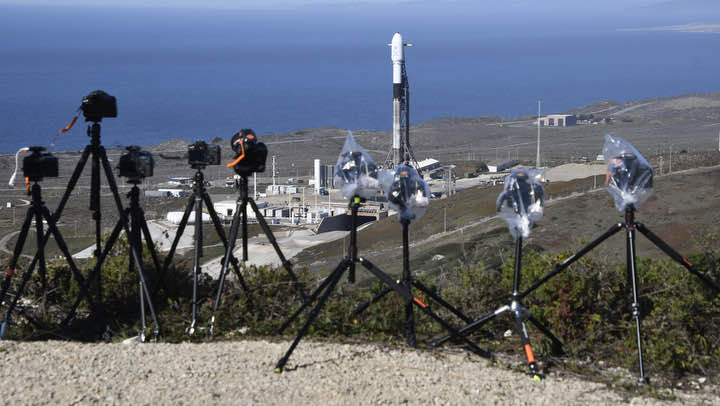
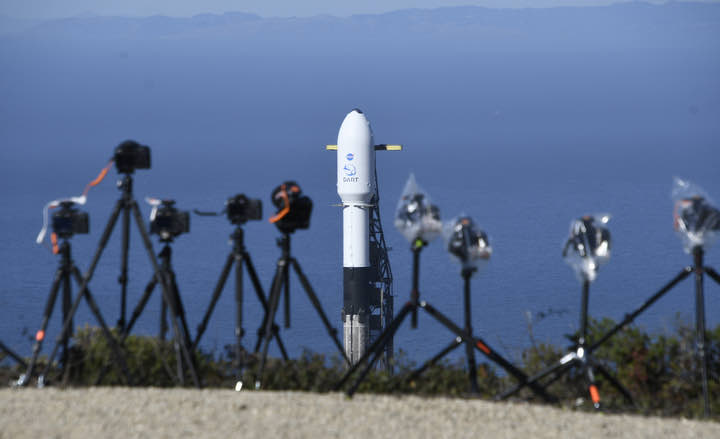
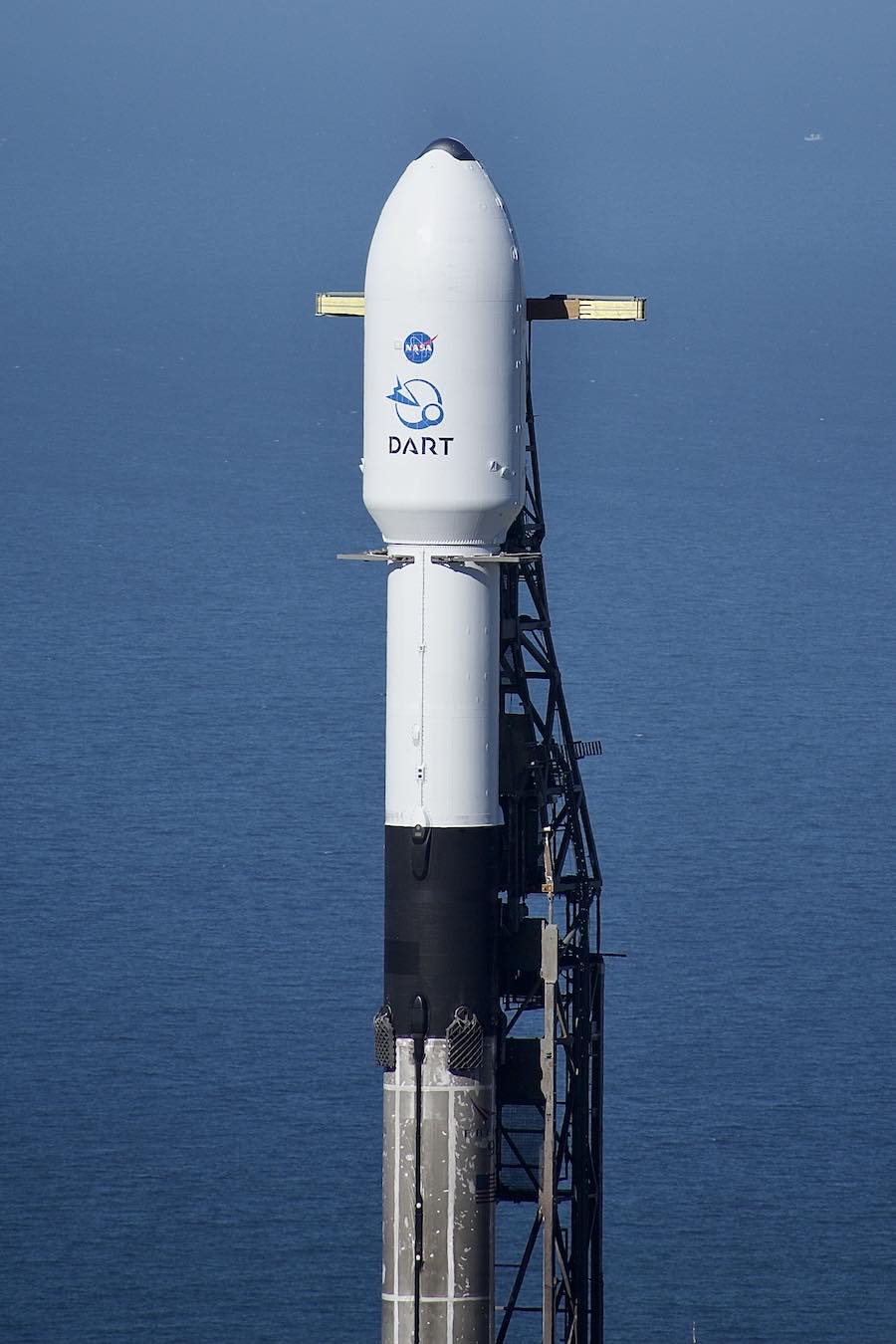
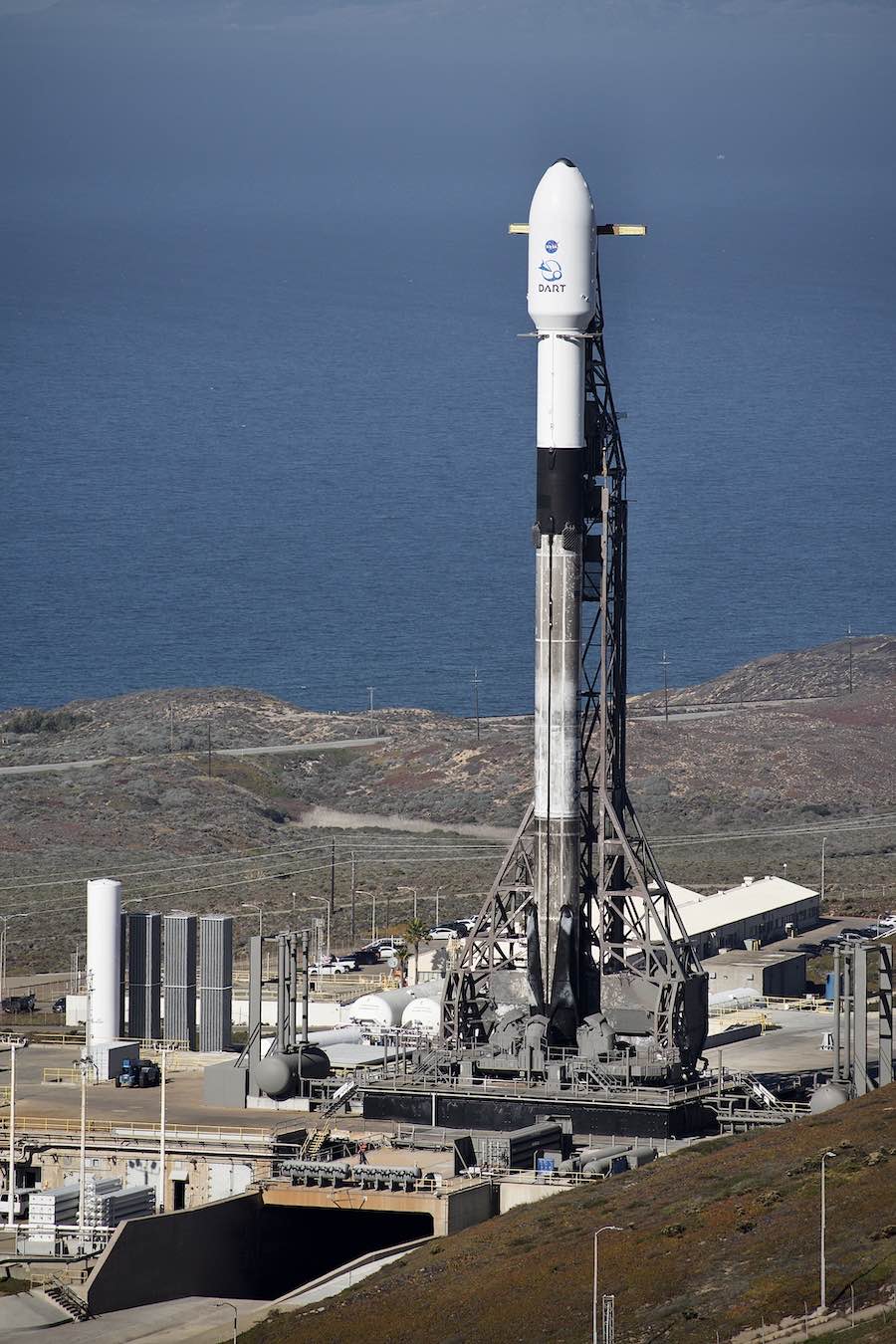

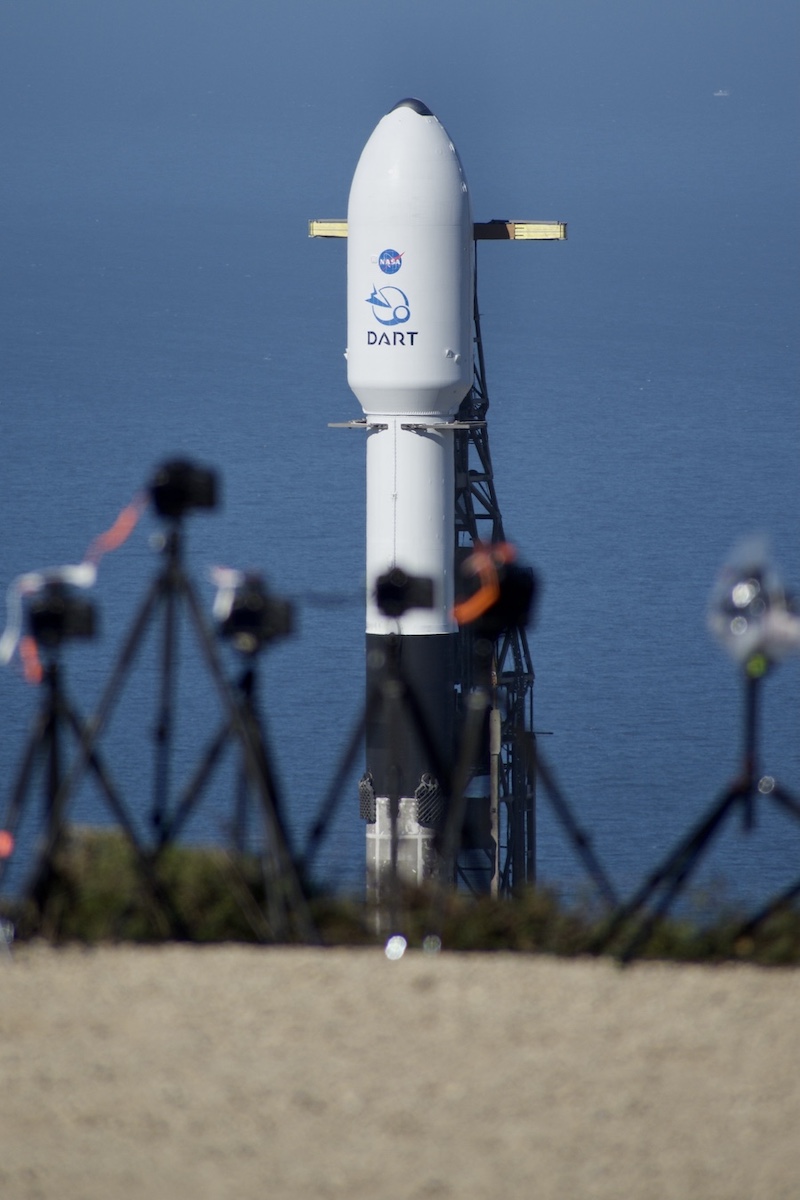
Email the author.
Follow Stephen Clark on Twitter: @StephenClark1.
